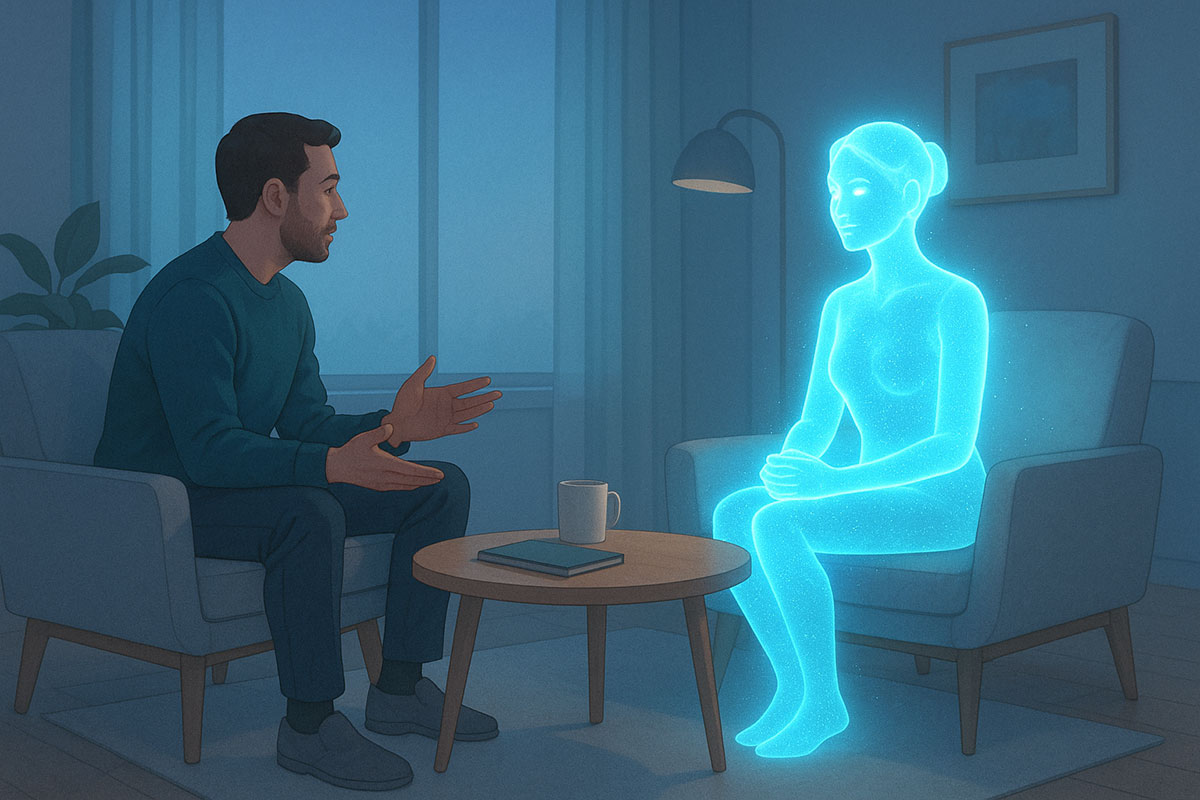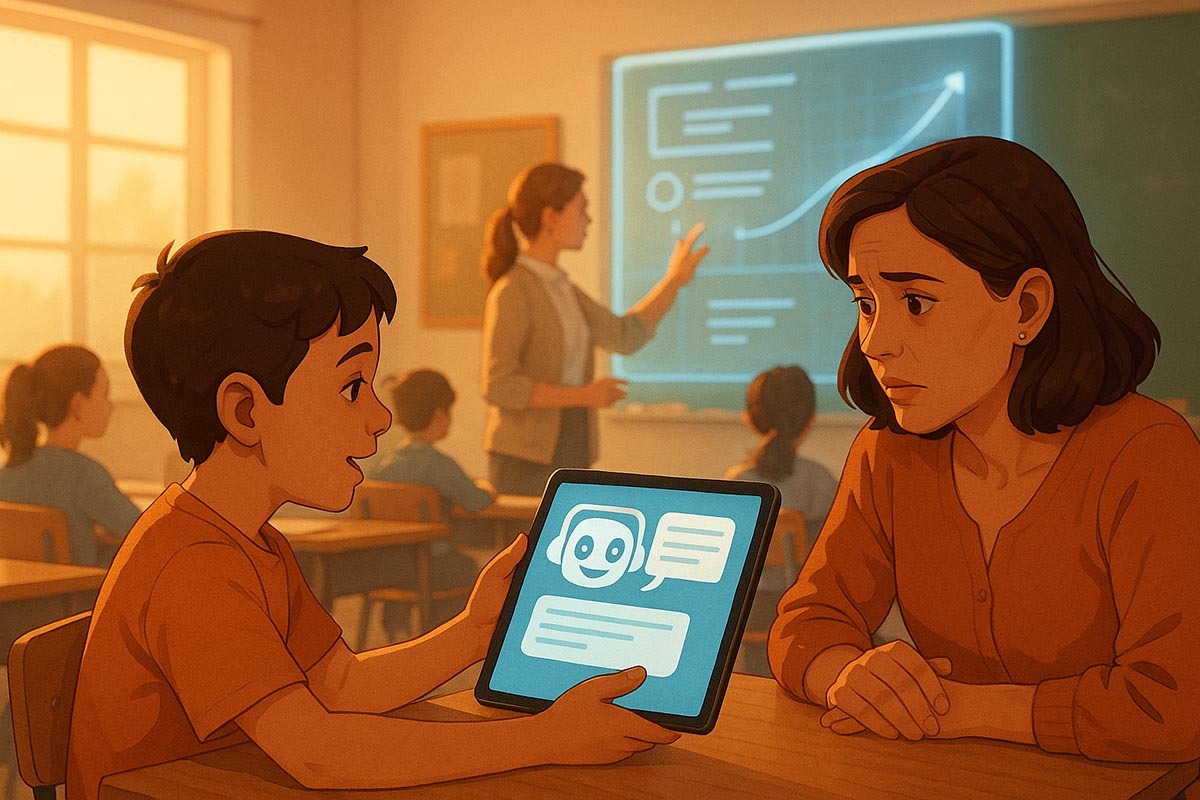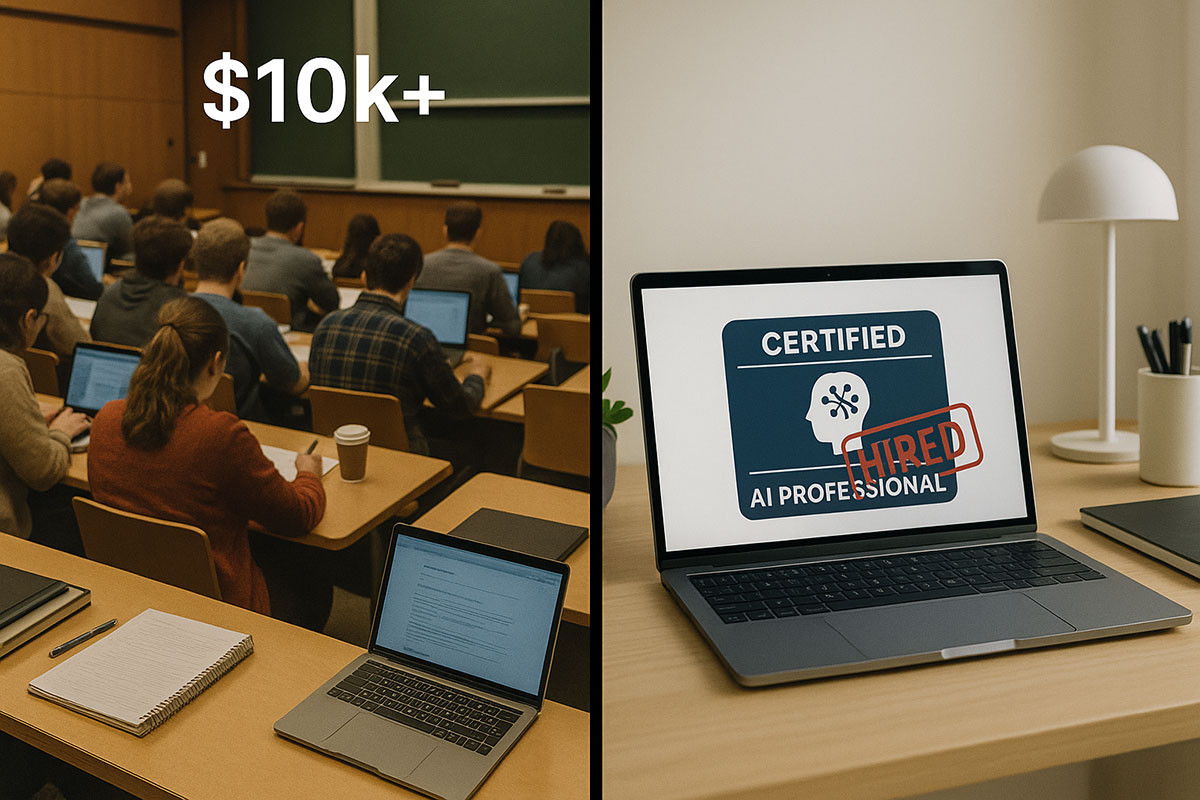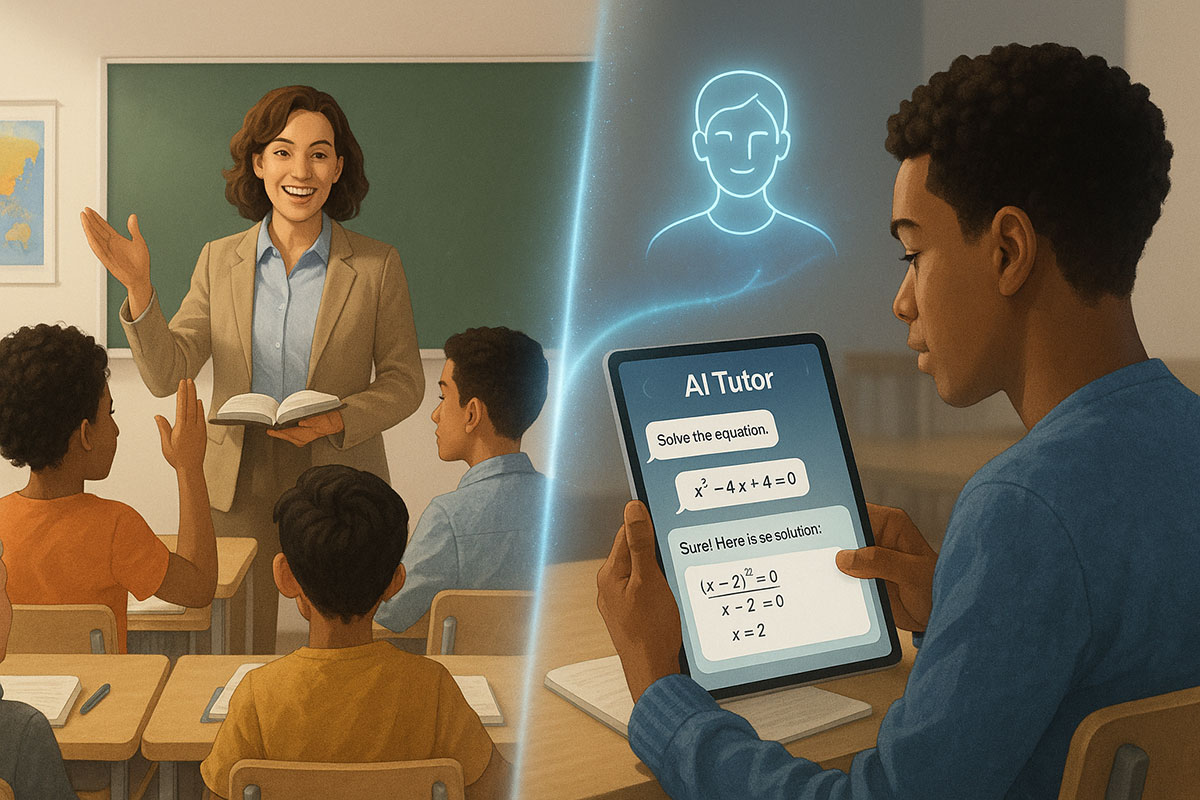AI in Mental Health: Chatbots as Digital Therapists in 2025
In 2025, millions use AI chatbots as digital therapists. Can they really support mental health—or do they risk oversimplifying complex care?
TrendFlash

Introduction: Everything Is Getting Smarter
Your home is getting smarter. Your city is getting smarter. Even your clothes and accessories will soon have AI embedded in them. In 2030, AI-powered "smart" devices will be as common as smartphones are today.
This guide explores the smart everything revolution and what it means for daily life.
Smart Homes: Today's Reality
Current Smart Home Devices
- Voice assistants: Alexa, Google Home, Siri (100M+ homes)
- Smart thermostats: Learning your preferences, optimizing energy
- Smart lighting: Adjusting based on time of day, activity
- Smart security: Cameras, doorbells, locks
- Smart appliances: Refrigerators, washers, ovens
What They Do
- Learn your routines and preferences
- Anticipate your needs (lights on before you enter)
- Optimize energy usage (save 10-15% on utilities)
- Provide security and peace of mind
- Enable remote control (check on home while away)
The Privacy Tradeoff
What you get: Convenience, cost savings, safety
What you give: Data on your routines, preferences, habits
Companies know: When you wake, sleep, exercise, cook, shower
Smart Cities: Emerging Reality
What Smart Cities Do
- Traffic optimization: AI adjusts traffic lights, reducing congestion 15-25%
- Parking: AI-guided to available spots (saves time, reduces emissions)
- Energy: Grid management optimizing renewable usage
- Pollution: Sensors monitoring and alerting to quality issues
- Emergency response: AI routing ambulances optimally, predicting incidents
- Public transport: Real-time optimization based on demand
Real Examples (2025)
- Barcelona: Smart city reduced traffic congestion 21%
- Singapore: AI-powered traffic lights reduced congestion 13%
- Copenhagen: Smart grid managing renewable energy
- Seoul: Smart bins optimizing waste collection
The Surveillance Question
Smart cities require extensive surveillance (cameras, sensors, data collection)
- Benefit: Safer, more efficient cities
- Risk: Orwellian monitoring, privacy erosion
- Reality: Both happening simultaneously
Wearable AI: The Next Frontier
What's Coming
- Smart glasses: AR overlays, navigation, real-time information
- Smart watches: Health monitoring advancing (detecting health issues before symptoms)
- Smart jewelry: Rings tracking health, mood, stress
- Smart clothing: Temperature regulation, health monitoring, gesture recognition
- Brain-computer interfaces: Experimental (Neuralink), possible 2030s
Health Monitoring Applications
- Apple Watch detecting irregular heartbeat (saving lives)
- Fitness trackers detecting overtraining
- Sleep trackers optimizing recovery
- Stress monitors detecting anxiety early
Connected Cars: Autonomous Future
Current State (2025)
- Level 2-3 autonomy available (Tesla, Waymo, others)
- Limited to specific conditions (highways, parking)
- Human driver still required (but minimal intervention)
Full Autonomy Timeline
- 2025-2027: Limited autonomous taxis in select cities
- 2027-2030: Broader rollout, human oversight optional
- 2030+: Full autonomy possible (regulations pending)
Implications
- 3.5M truck driver jobs at risk (largest occupation in US)
- Safer roads (95% of accidents caused by human error)
- City redesign (parking lots → parks)
- New transportation models (car ownership declining)
IoT Explosion: Everything Connected
The Numbers
- 2020: 11B IoT devices
- 2025: 20B IoT devices (estimated)
- 2030: 30B+ IoT devices (projected)
Types of Connected Devices
- Home devices (smart homes)
- Wearables (health, fitness)
- Industrial (manufacturing, agriculture)
- Infrastructure (power grids, water systems)
- Environmental (air quality, weather)
The Data Generated
All these devices generate massive data:
- Usage patterns
- Behavioral data
- Environmental information
- Health metrics
Data is the new oil. Companies collecting, analyzing, profiting from it.
AI in Daily Activities
Morning
- Smart alarm learns your optimal wake time
- Smart lights gradually brighten
- Smart thermostat adjusted to comfortable temperature
- Coffee maker starts automatically
Commute
- AI-predicted traffic patterns
- Optimal route suggested by navigation
- Autonomous or semi-autonomous vehicle handling driving
- Time freed up for work, reading, relaxation
Work
- AI-powered productivity tools
- Smart office managing temperature, lighting
- Meeting assistant recording and summarizing
Evening
- Smart entertainment system suggesting content
- Smart home optimizing for relaxation mode
- Health tracking summarizing daily activity
- Sleep optimization (temperature, lighting)
The Privacy-Convenience Tradeoff
What You're Trading
- Your location data (all the time)
- Your activity patterns (what you're doing)
- Your preferences (what you like)
- Your relationships (who you spend time with)
- Your health data (intimate details)
What Companies Get
- Detailed profile of who you are
- Ability to predict your behavior
- Ability to influence your decisions
- Valuable data to sell or use
What You Get
- Convenience (things happen automatically)
- Cost savings (efficient energy use)
- Safety (security, health monitoring)
- Entertainment (personalized content)
Is It Worth It?
That's a personal decision. The tradeoff is real and ongoing.
Future Vision: 2030 & Beyond
2030: Smart Everything Standard
- Most homes have smart systems
- Most cities have smart infrastructure
- Most people wear smart devices
- Autonomous vehicles common in urban areas
- AI assistance ubiquitous
2035: The Connected Life
- Your entire environment responds to your presence
- Seamless integration across all devices
- Predictive assistance (AI anticipates needs)
- Privacy either solved or sacrificed
Conclusion: Smart Everything Is Here
The smart everything revolution is not coming—it's here. Every year brings more connected devices, more AI assistance, more convenience. The tradeoff is privacy and data. Understanding what you're trading for what convenience is essential.
Explore more on AI in daily life at TrendFlash.
Share this post
Categories
Recent Posts
Opening the Black Box: AI's New Mandate in Science
AI as Lead Scientist: The Hunt for Breakthroughs in 2026
Measuring the AI Economy: Dashboards Replace Guesswork in 2026
Your New Teammate: How Agentic AI is Redefining Every Job in 2026
Related Posts
Continue reading more about AI and machine learning

AI in Schools 2025: Parents' Complete Guide (Good, Bad, and What to Do)
From "smart" toys that talk back to automated grading systems, AI has officially rewired childhood. With 86% of students using AI, parents are asking: Is this helping them learn, or helping them cheat? We break down the reality of the 2025 classroom.

8 AI Certifications That Actually Get You Jobs (And Won't Cost $10K)
With the AI education market hitting $8.3B in 2025, thousands of courses promise the world but deliver little. We've cut through the noise to find the 8 credentials that employers actually respect—and they won't bankrupt you.

AI Teachers Are Here: Do Human Teachers Have a Future? (2025 Report)
The education sector is facing a seismic shift. AI tutoring systems are now embedded in 59% of institutions globally. Teachers worry. Parents worry. Students wonder if they still need classrooms. But here's the truth: AI isn't replacing teachers. It's forcing them to evolve into something far more valuable.